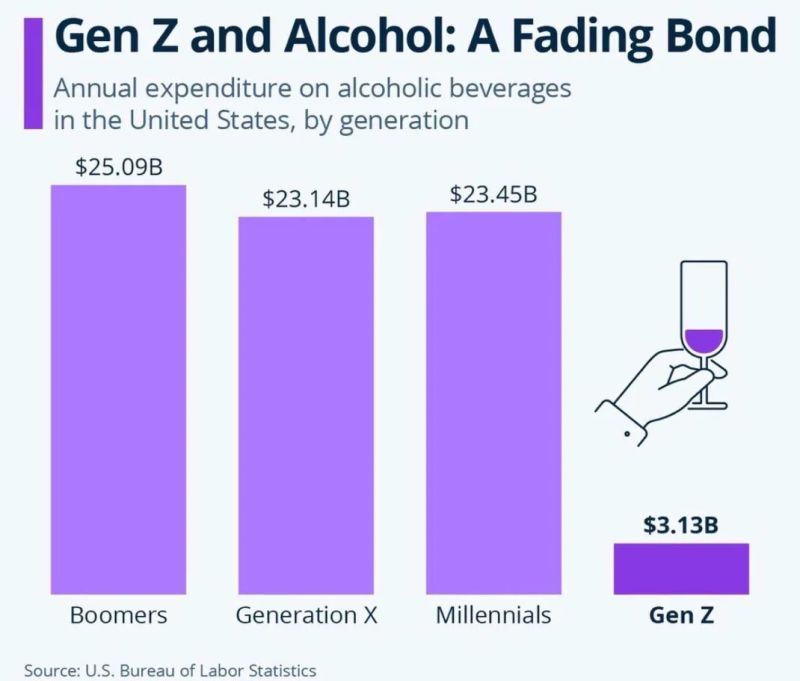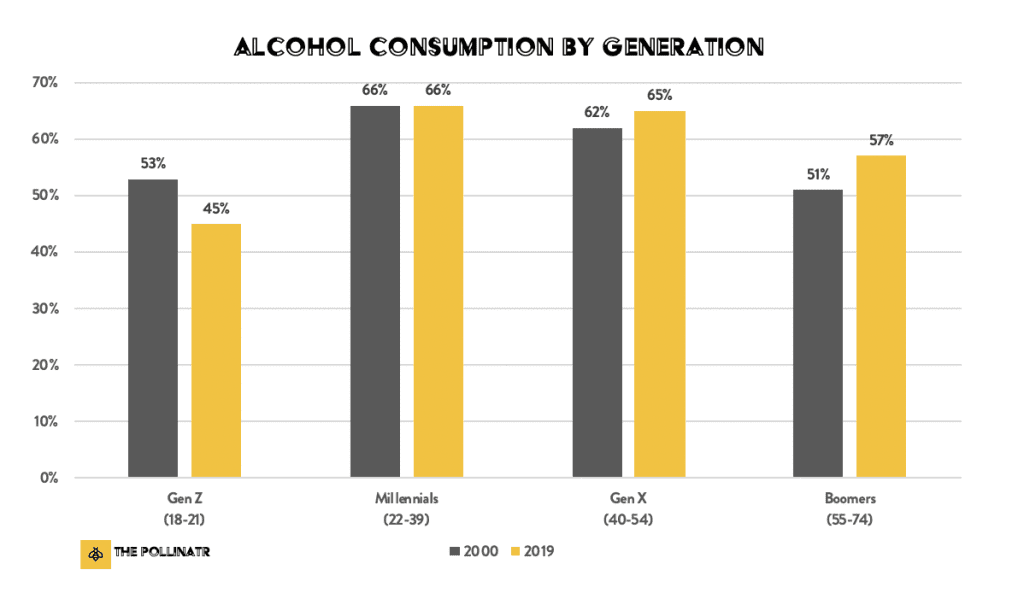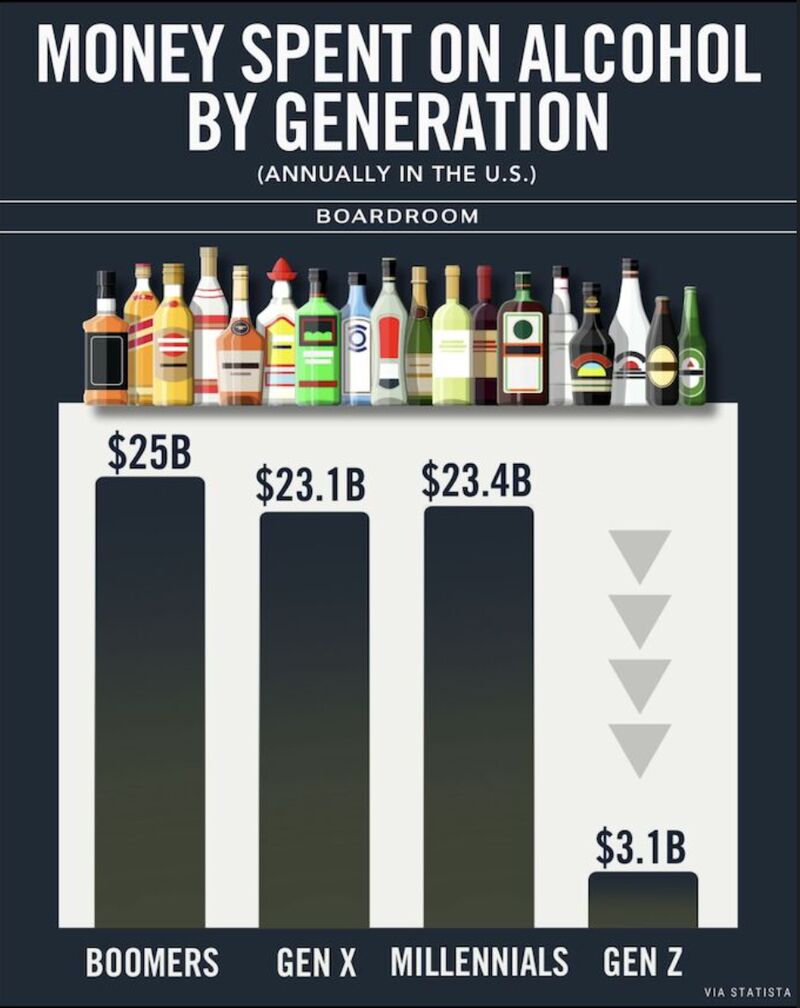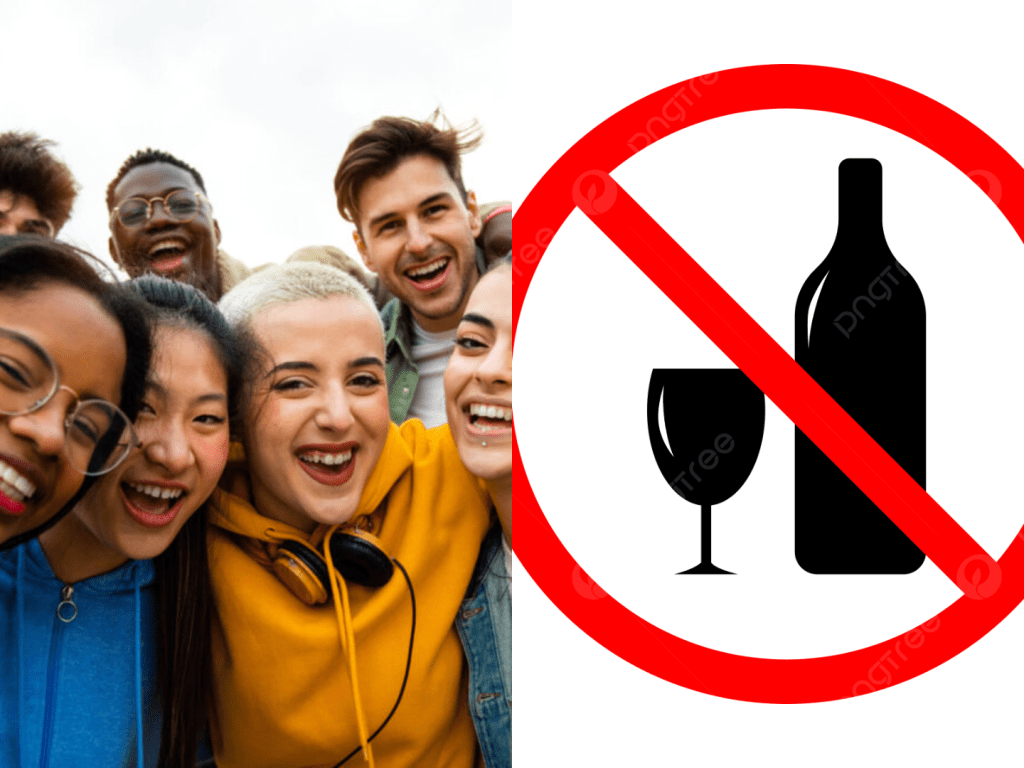Gen Z Is Drinking Less Than Any Other Adult Generation — And Their Reasons Might Change the Way We All Think About Alcohol

It’s Saturday night, and the scene looks familiar: friends gathering under neon lights, music thumping, laughter in the air. But there’s something noticeably different. The glasses in their hands aren’t filled with beer or cocktails. Instead, there’s sparkling water, kombucha, or some new strawberry-infused mocktail. It’s not that alcohol has vanished—it’s that, for Gen Z, it’s simply not the star of the show anymore.
Gen Z, defined as those born between the late 1990s and early 2010s, is breaking away from the drinking habits that defined Millennials, Gen X, and Boomers before them. This isn’t just a vague cultural shift. It’s showing up in data from every direction. Research by Gallup and other leading surveys show that young adults today are drinking significantly less than their older counterparts. Compared to Millennials at the same age, Gen Z is 20–25% less likely to drink regularly. And the ones who do often opt for smaller amounts, less frequently, and are far more likely to explore non-alcoholic alternatives.

At first glance, it might seem surprising. After all, young adulthood has long been associated with wild nights, hangovers, and blurry party photos. But Gen Z is quietly rewriting the rules, not out of rebellion—but out of intentionality. They’re not just “not drinking.” They’re choosing different priorities entirely.
Mental health plays a huge role here. Gen Z is the most therapy-positive, self-aware, and emotionally open generation we’ve ever seen. They talk about anxiety and depression not as taboo but as shared experiences. Many see alcohol, not as a way to cope, but as a potential trigger. For them, waking up with clarity the next morning isn’t boring—it’s self-care.
And then there’s the health factor. While previous generations only started considering health in their 30s or 40s, Gen Z has grown up in the wellness boom. Smoothies, sleep tracking, gut health, and clean eating are already part of their vocabulary. Alcohol—full of sugar, dehydrating, and disruptive to sleep—just doesn’t fit the lifestyle they want. That doesn’t mean they’re all saints. It means they’re making thoughtful trade-offs, and alcohol isn’t always worth the cost.
Of course, this doesn’t mean Gen Z doesn’t party. They absolutely do. But the vibes are different. Less blackout drinking, more curated energy. Instead of centering around booze, their nights out focus on community, music, creativity, and often—TikTok. It’s not unusual to see Gen Zers filming viral dance trends in clubs, fully sober, fully present, and honestly? Probably having more fun than the crowd two generations ago who wouldn’t remember the night at all.

There’s also something quietly revolutionary about how they’ve made sobriety or moderation cool. What once felt isolating—being the one not drinking—now feels like empowerment. The sober-curious movement, which started gaining steam in wellness circles, has found its home with Gen Z. Trendy alcohol-free spirits, mocktail menus, and sober-only events are popping up all over cities. Influencers with millions of followers are openly sharing their decisions to quit drinking, not because they had a “problem,” but because they realized they didn’t need it.
Interestingly, brands are catching on. Huge alcohol companies are investing in non-alcoholic versions of their products. Seltzer-based drinks with minimal alcohol or even functional beverages (like mood-boosting adaptogens) are on the rise. Michelob Ultra’s marketing, with its focus on health and balance, is one of many trying to stay relevant. Because they know the truth: if they don’t adapt to Gen Z’s mindset, they’ll be left behind.
But it’s not all about clean living. Gen Z’s drinking habits also reflect deeper issues—like trust, trauma, and control. Many of them grew up watching the devastating effects of the opioid crisis, the mental health collapse during the pandemic, and financial insecurity looming over everything. Drinking heavily just doesn’t feel safe. Or smart. Or like something they want to gamble their future on. It’s not fear—it’s realism. And it’s rewriting everything we thought we knew about youth culture.
Not everyone is fully on board, of course. Some reports have recently shown a slight uptick in alcohol use among Gen Z now that more are reaching legal drinking age. But even then, their relationship with alcohol is more mindful. They drink slower, choose better, and often stop earlier. Even their approach to hangovers has changed: hydration tablets, electrolytes, and a 10 p.m. Uber home are part of the new playbook.
There are critics who argue that this generation is “too soft” or “boring.” But those claims usually come from people who don’t understand that for Gen Z, joy doesn’t need to be reckless. Fun doesn’t need to be blurry. And confidence doesn’t come from a bottle—it comes from knowing who you are and what you’re about. This is the generation that’s built businesses from their bedrooms, called out outdated norms with a single viral video, and started global conversations about mental health, all before turning 25. If they’re choosing to leave alcohol behind—or at least keep it in check—it’s not a sign of weakness. It’s a flex.
So what does this mean moving forward? Culture changes slowly, but Gen Z is planting seeds that will grow far beyond their twenties. Future parties may still have drinks, sure—but the pressure to get drunk just to “fit in” is fading. Peer pressure is losing its grip. And that’s a win for everyone.
In the end, this isn’t a story about what Gen Z is rejecting. It’s about what they’re embracing: clarity, health, connection, and intention. Their nights out may look different, but their joy? It’s just as loud. And their impact? That’s only just beginning.


